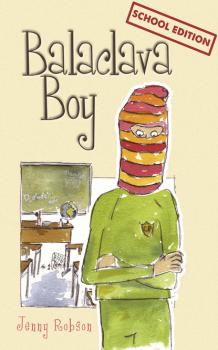Jenny Robson
Список книг автора Jenny RobsonGranite
Thoughtful, insightful and compelling, Granite is a well-executed imagining of what happened to cause the collapse of the civilisation of Great Zimbabwe (called Zimba Remabwe in the book). While adult historical fiction has experienced a recent resurgence in interest, narratives are mostly drawn from European history; Granite is refreshingly African, illuminating a relatively unexplored area in fiction. It also shifts “fictionalised history” away from the European centre: in the story, Zimba Remabwe exists as a sophisticated African city state well integrated with the rest of the mid-fifteenth-century world. It is a world in which Arab scholars travel from China and India to Europe and Britain, filing their chronicles in the revered library of Timbuktu. The narrative method is worth noting: because he cannot write, the story is dictated by a young nobleman called Mokomba – one of few survivors of his city’s downfall. The penman is Shafiq, a learned Arab traveller who is a father figure after the passing of Mokomba’s own father. Each chapter relates a series of events from these two characters’ perspectives, as they fill in what the other might have glossed over. The result is a finely rendered narrative of two distinct voices. The story is rich in detail and significance: the battle of Mokomba’s twin sister Raii against the status quo that will trap her in an arranged marriage; the bizarre prejudice experienced by the non-witches; the absolute power that corrupts the king; the tragedy of the most innocent of Mokomba’s family inviting in the pest that will kill them all; the tentative peace between nobles and commoners, which falls apart in times of peril. Granite is a stimulating, thought-provoking and exciting flight of imagination, grounded in a historical perspective that paints Africa as anything but the “dark continent”.
Balaclava Boy (school edition)
Tommy, the newcomer at Colliery Primary, wears a balaclava to school every day. Why? What could possibly be underneath? A terrible scar? Some alien life form? Dumisani and Doogle, aka the Doo Dudes and best friends in the world, are determined to find out. Whatever it takes.
This school edition of Balaclava Boy is included in the Department of Basic Education’s National Catalogue for Senior Phase learners. It has been revised and updated with activities for pre-reading and post-reading, questions according to cognitive levels, glossaries and notes on the genre of the novel. Memoranda available online at www.tafelberg.com.
Monday evening, Thursday afternoon
“I’m telling you, Faheema, it was because of your red crayon and that stupid clown’s nose. That’s what made us friends.” “And I’m telling you, Louise. There was no red crayon! No, it was because of my pink lunchbox at break and that horrible Sean Groenewald.” “Red crayon!” “Pink lunchbox! And your hair shining like a gold crown.” “Oh, come on! How could my hair ever look like a gold crown? You’re making that up!” We argued until we both burst out laughing. But there were other arguments going on. Not so, Faheema? Serious arguments that didn’t end with everyone laughing. Arguments that threatened to destroy our friendship forever.
Back to Villa Park
The story takes place on the day of Dirk’s eighteenth birthday, when he has applied for a position in a youth training programme at Kagiso Holdings. At seventeen, and without finishing school, he had hitchhiked back to Johannesburg, where he lived with his parents until he was twelve years old. Now, back in Villa Park, his old Johannesburg neighbourhood, Dirk lives in the maid’s quarters of the house in Groenewald Street where he lived as a boy.
At the Kagiso Holdings interview Dirk finds he is unable to answer the questions in the test he is given, and copies from the girl in front of him. When he is discovered, he is kicked out of the interview. His day goes from bad to worse – and as the story unfolds, the reader learns of Dirk’s life up to now; why he was living with his sister for the last five years, and why he has come back to Joburg. Dirk eventually learns that while life can be “unfair”, we all have the power to treat fairly the people we encounter.



